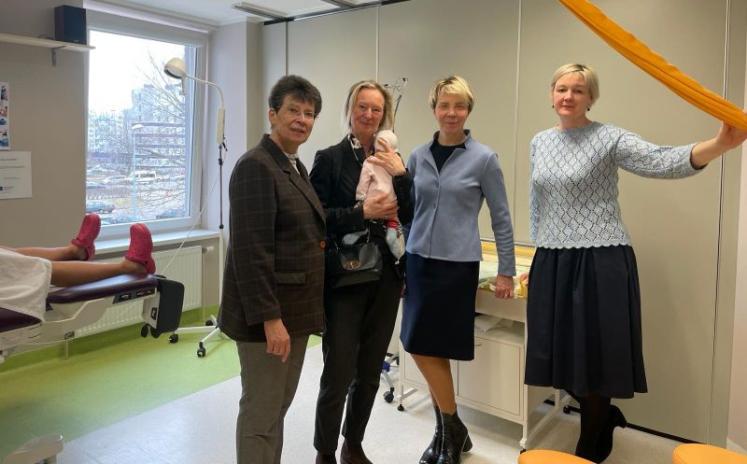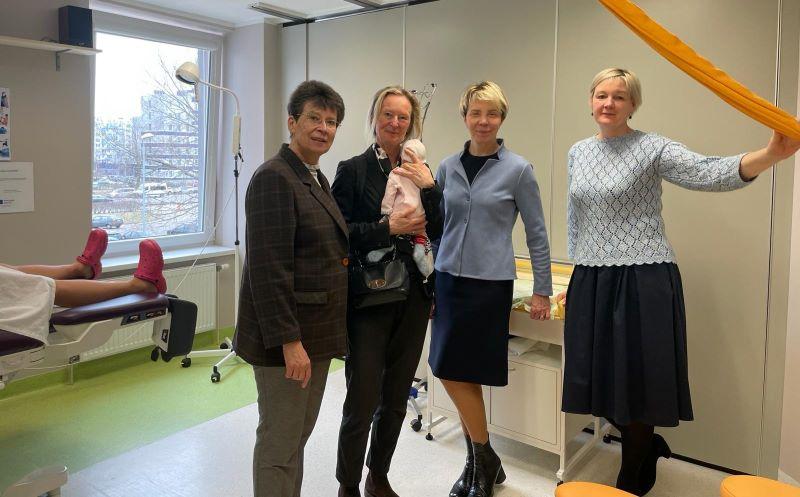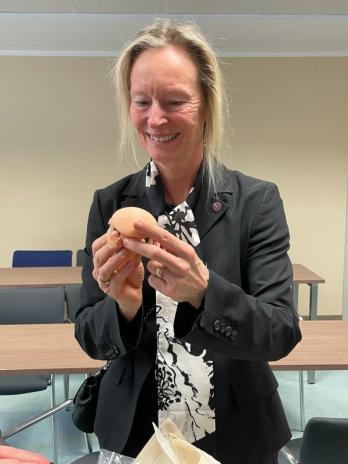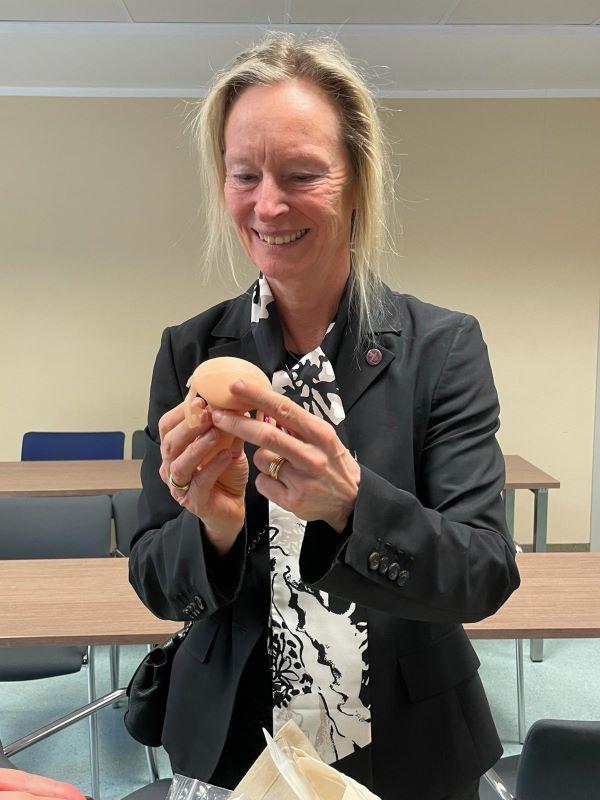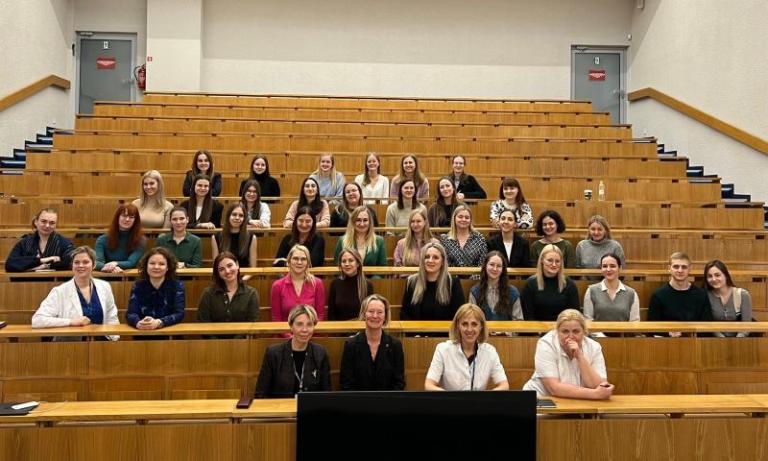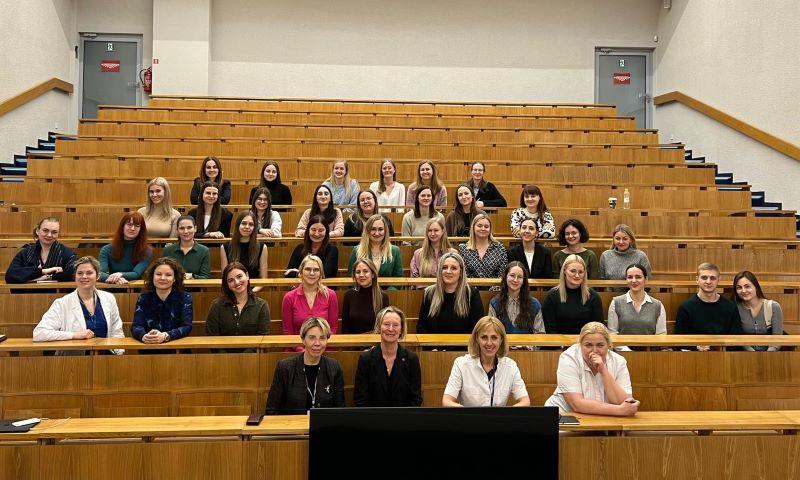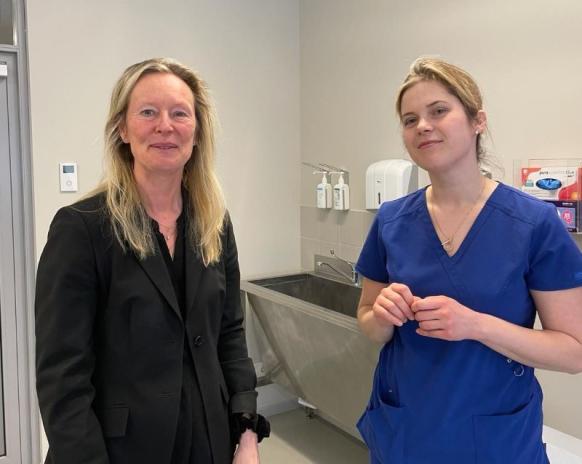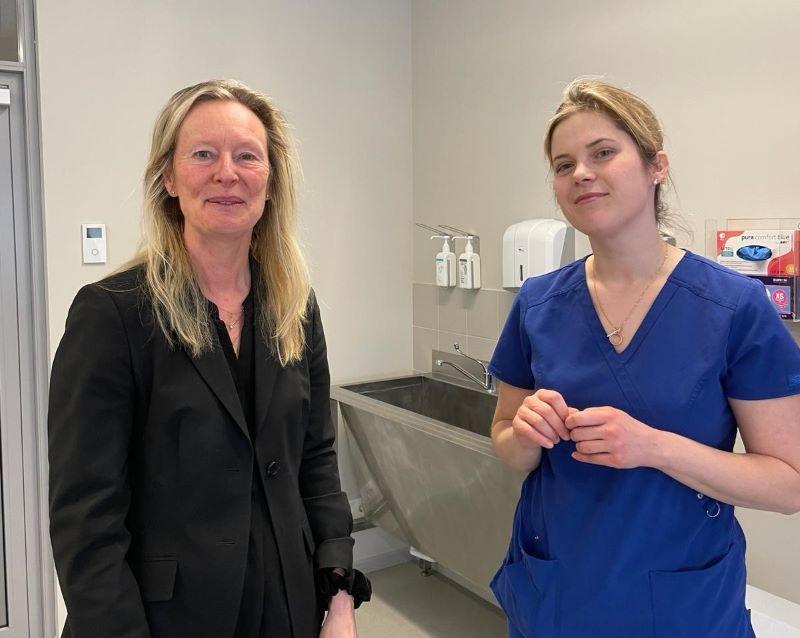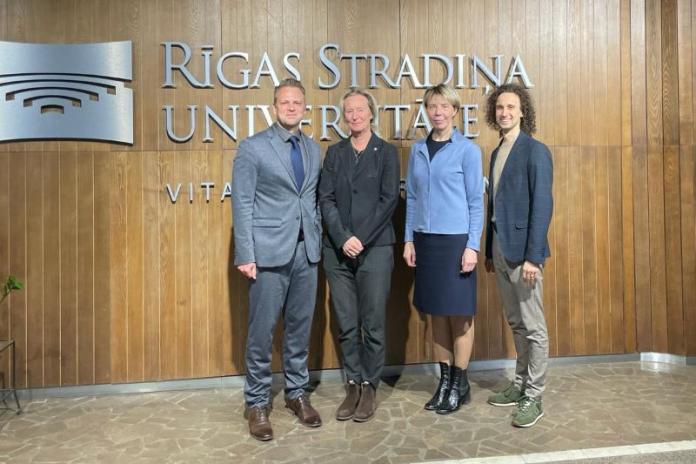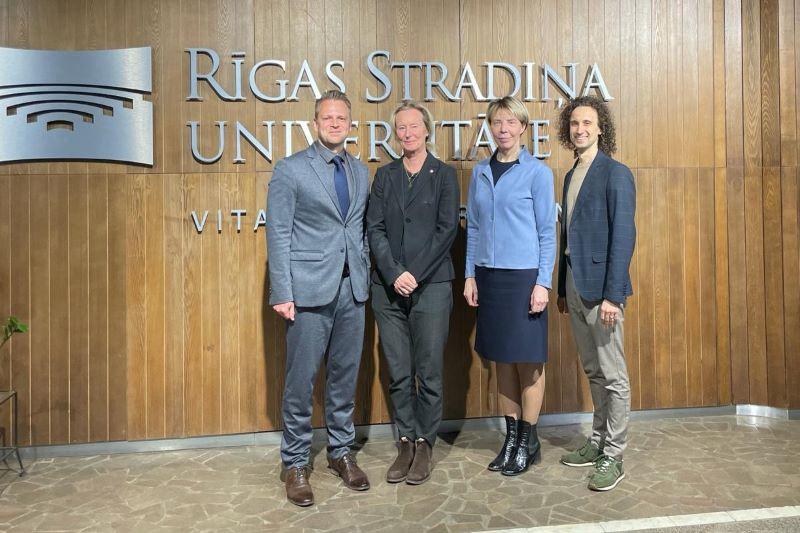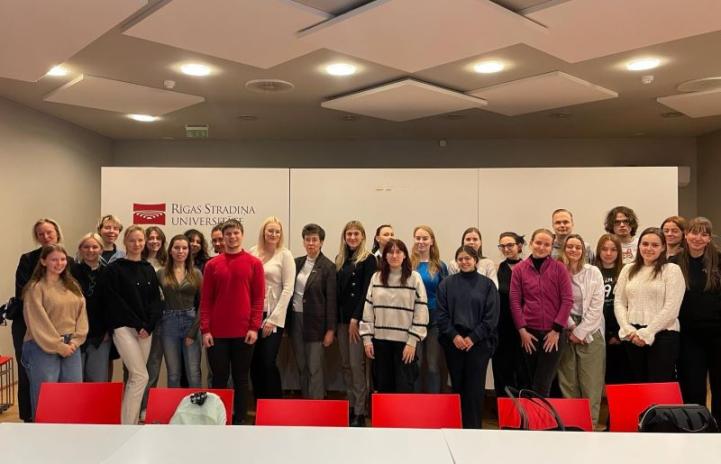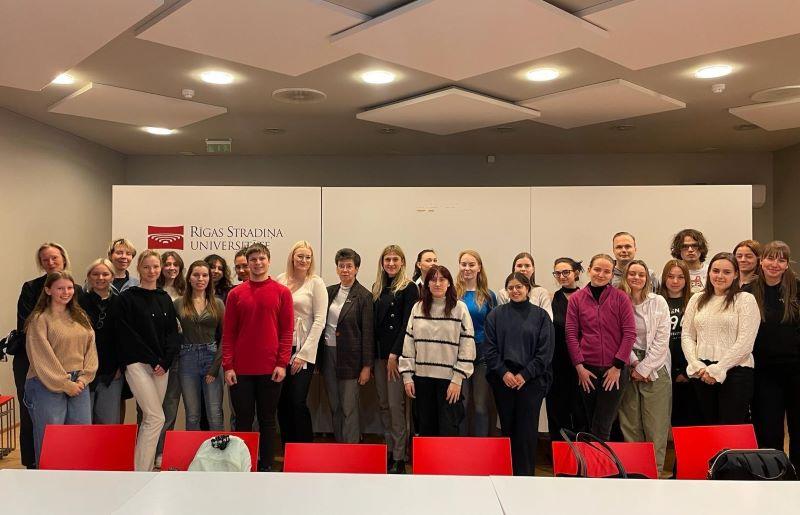Cooperation provides an opportunity for learning and development for both parties
Kristina Gemzell Danielsson has been working as a visiting professor in the Rīga Stradiņš University (RSU) Department of Obstetrics and Gynaecology for the second academic year in a row. She is the head of the Department of Women's and Children's Health at Karolinska University Hospital in Sweden.
Prof. Danielsson is also the head of the research group at the WHO Collaborating Centre for Research and Research Training in Human Reproduction at Karolinska and a member of the Nobel Assembly for the Nobel Prize in Physiology or Medicine. She has chaired the FIGO (International Federation of Gynaecology and Obstetrics) Committee on human rights, refugees, and violence against women. The professor is the author of diverse studies and numerous publications, with an h-index of 55.
Until now, Prof. Danielsson conducted her lectures and classes at the RSU Department of Obstetrics and Gynaecology remotely. Last academic year, she organised two discussion clubs for students on topical issues concerning contraception and abnormal uterine bleeding. She has created educational materials by recording video lectures and prepared clinical cases and tests for the students of the Faculty of Medicine, who rated her input highly in class feedback surveys.
In 2023, Prof. Danielsson participated in the scientific committee of the RSU Research Week Knowledge for Use in Practice, reviewed submitted abstracts, and gave a lecture on women's reproductive health rights.
Onsite visit
From 18 to 20 March this year, the professor visited RSU to discuss future opportunities for cooperation in research and teaching.
On 18 March, the professor visited the RSU Medical Education Technology Centre (METC). RSU Prof. Gunta Lazdāne, Acting Assistant of the midwifery course Signe Irša, and representatives from METC participated in the meeting.
In the afternoon, the professor met with the Vice-Deans of the Faculty of Medicine Ingus Skadiņš and Kārlis Rācenis to discuss how to successfully ensure the learning process by integrating education with research in a modern clinical setting. As in other developed countries, reproductive health services are increasingly provided at outpatient clinics rather than hospitals. Therefore, the teaching process must be organised in such a way that students have the opportunity to communicate with patients, which sometimes poses a challenge in reproductive medicine.
On the same day, a discussion club organised by the sexology and the gynaecology and obstetrics student scientific research groups was held, where students presented their cases on family planning issues. The professor participated as an expert and helped find the best clinical solutions. The discussion was active and productive, with students willingly engaging until late in the evening.
On 20 March, the professor visited Riga East Clinical University Hospital (RAKUS), got acquainted with the range of gynaecological services that the hospital provides and expressed her readiness for cooperation and joint implementation of training programmes for residents and medical staff. The meeting was attended by Harals Plaudis, RAKUS Member of the Board, and Prof. Jana Žodžika, Head of the Gynaecology Clinic.
Observation and seminar
Prof. Danielsson observed a class for 4th-year students of the Faculty of Medicine conducted by the acting assistant at the Department of Obstetrics and Gynaecology Laura Rācene. Interestingly, the class discussed a clinical case prepared by the professor as part of her methodological work. The lecturer's work, and the students' preparedness and engagement left a positive impression.
When asked what she would take with her from her experience at RSU, Prof. Danielsson replied that how independently the students worked and that basic manipulations were recorded on video were something she would gladly implement at Karolinska.
The seminar for residents was very successful. At the seminar, residents specialising in gynaecology prepared and presented an algorithm for early pregnancy loss, and compared existing practices in Latvia with WHO recommendations for the termination of pregnancy.
The residents’ excellent skills and the visiting professor’s high level of expertise made it stand out and will help implement evidence-based practice in Latvia, as well as engage into reasoned discussions with policymakers, as legislative changes will be needed.
Future collaboration
On the final day of her visit, the professor familiarised herself with the training infrastructure at the Riga Maternity Hospital and visited the RSU Anatomy Museum.
During the meetings with students, faculty members, and managers of various levels, a wide range of opportunities for cooperation in teaching, research and medical care were identified.
Related news
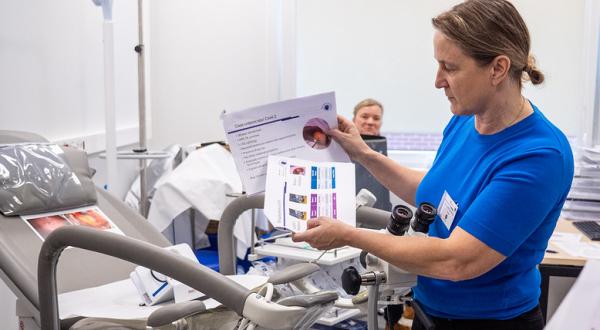 Colposcopy masterclass in Rīga: step towards unified, high-quality cervical cancer prevention in EuropeInternational Cooperation, Public Health
Colposcopy masterclass in Rīga: step towards unified, high-quality cervical cancer prevention in EuropeInternational Cooperation, Public Health